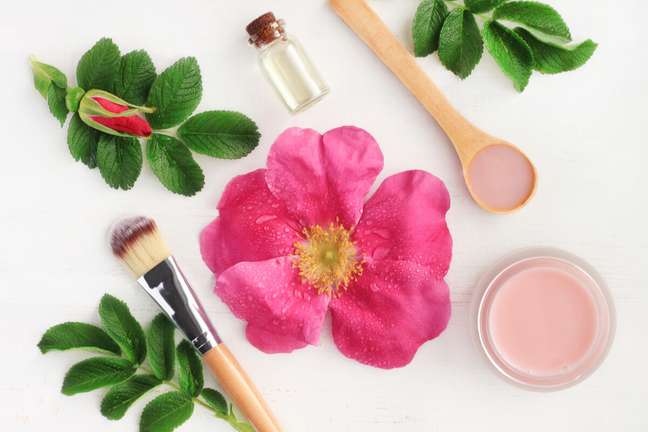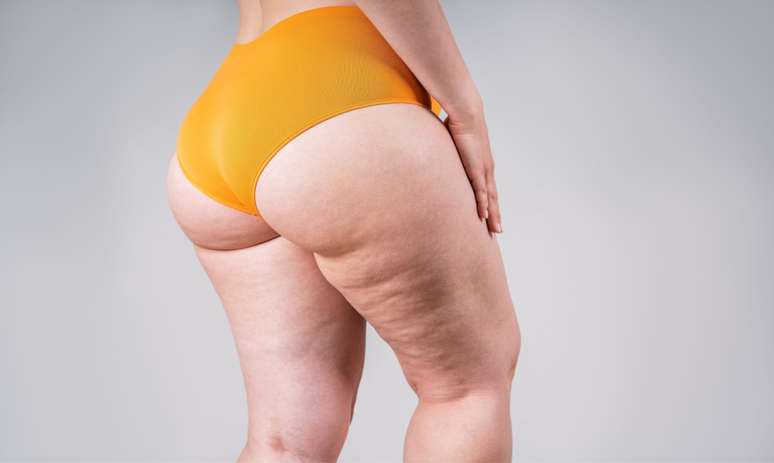Vegan cosmetics have the same benefits as conventional products
The growth of vegan cosmetics can be explained by very common current consumer behavior. “He is increasingly concerned about the ethical and environmental impact of his purchases. Veganism is very strong in the food sector, however consumer concern is also spreading to other sectors, such as fashion and beauty”, explains Maria Eugenia Ayres. , pharmacist and technical manager at Biotec Dermocosméticos.

According to the pharmacist, vegan cosmetics they normally do not have ingredients of animal origin such as meat, poultry, fish, eggs, dairy products, honey, propolis, royal jelly, among others. They are also free of animal by-products such as insect dyes and silk and are not tested on animals (ingredients and finished product). Furthermore, they do not use raw materials from companies that carry out animal tests.
What are the benefits of vegan products?
The benefits of vegan cosmetics are the same as traditional ones. This, if we think about it skin care, hair and appearance. “They help moisturize, delay the signs of aging and do everything conventional ones do, but without using products of animal origin. For this they use chemical and vegetable equivalents, guaranteeing care and beauty of the skin”, guarantees Maria Eugenia.
Vegan cosmetics vs natural cosmetics
According to the specialist, it is always necessary to emphasize that vegan and natural cosmetics are different things. “These placements can be used at the same time, but that doesn’t mean they are the same thing. A product can have fully synthetic ingredients and be classified as vegan, for example. A vegan product is not necessarily free of synthetic products such as preservatives, sulfates, petrolatum, etc. “, explains Maria Eugênia.
However, this does not detract from the advantages of this type of product. “Vegan skin care applies to those seeking an end to animal cruelty, the desire to see a decrease in global warming (more related to the food industry), the desire to be healthier, among others,” he points out. the pharmacist.

Vegan products for rejuvenation
The drug explains that there are numerous rejuvenation assets that are considered vegan and are a reference on the market in rejuvenating and pro-aging action. “The low molecular weight hyaluronic acid carrier of Hyaxel® Organic Silicon, for example, is a vegan active obtained through biotechnologies. In addition to its maximum moisturizing action, it intensifies epidermal renewal and increases the skin’s defense system, counteracting reactions inflammatory “, explains the expert.
Another bet on vegan skincare is the Superox C® ingredient, an Australian Kakadu plum extract, the largest source of vitamin C. “Contains a large amount of polyphenols, such as gallic and ellagic acids. Strengthens the system. defense of the skin against oxidative stress and increases the production of collagen, hyaluronic acid and increases the transport of C vitamin“says the pharmacist.
Products for the treatment of skin changes
For skin changes, such as dark circles, there are also vegan actives found in the compounding pharmacy. This is the case of Aldavine 5X®, a combination of two polysaccharides (galactans and fucans) from algae. “The active reduces the appearance of dark circles and reduces swelling around the eyes,” says the pharmacist.
Benefits of using vegan cosmetics
Maria Eugenia points out that in addition to veganism, which aims to put an end to the exploitation of animals, there are some additional benefits. “Products Vegans are extremely beneficial. This is because by not using these ingredients, they do not cause harm to any type of animal. Another point is that by not using animal products, they don’t encourage deforestation for livestock and other types of herds, ”he adds.
But it’s worth a warning: “The risk of allergy exists, yes. Just because a product is vegan doesn’t mean it will be hypoallergenic. There is a difference between these terms. Hypoallergenic means that a product contains few allergy-producing substances known as allergens. the vegan product is the product that does not contain active ingredients of animal origin and that has not been tested on animals “, he concludes.
by Maria Claudia
+The best content in your email for free. Choose your favorite Earth Newsletter. Click here!
Source: Terra
Benjamin Smith is a fashion journalist and author at Gossipify, known for his coverage of the latest fashion trends and industry insights. He writes about clothing, shoes, accessories, and runway shows, providing in-depth analysis and unique perspectives. He’s respected for his ability to spot emerging designers and trends, and for providing practical fashion advice to readers.





![Such a wonderful sun in advance: Summary of the episode of September 16th on Tuesday [SPOILERS] Such a wonderful sun in advance: Summary of the episode of September 16th on Tuesday [SPOILERS]](https://fr.web.img6.acsta.net/img/f5/f3/f5f3b0561f4ff6f683c8c73f74dee9f8.jpg)

